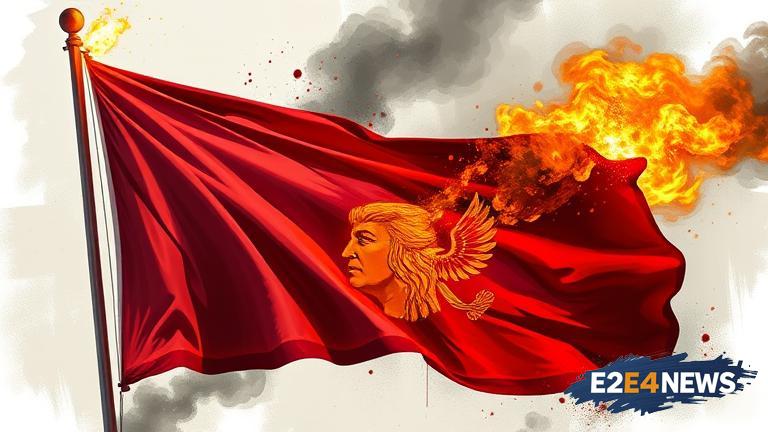The recent flag burning order issued by President Trump has sparked a nationwide controversy, with many questioning the motivations behind this move. Critics argue that this order is a deliberate attempt to divert attention from more pressing issues, such as the economy, healthcare, and social justice. On the other hand, supporters of the order claim that it’s a necessary measure to protect the national flag, a symbol of American pride and unity. The order has been met with widespread criticism from civil liberties groups, who argue that it infringes upon the fundamental right to free speech. The American Civil Liberties Union (ACLU) has condemned the order, stating that it’s a clear violation of the First Amendment. Many have also pointed out that flag burning is a form of peaceful protest, a means of expressing dissent and discontent. The order has also been criticized by lawmakers, with some arguing that it’s an overreach of executive power. Despite the backlash, the Trump administration has defended the order, citing the need to protect national symbols and maintain public order. The debate surrounding the flag burning order has also raised questions about the limits of free speech and the role of government in regulating public expression. Some have argued that the order is a slippery slope, one that could lead to further restrictions on free speech and assembly. Others have pointed out that the order is a clear example of the government’s attempt to suppress dissenting voices. The controversy has also sparked a wider debate about the meaning and significance of the national flag. While some see it as a symbol of national pride and unity, others view it as a symbol of oppression and inequality. The flag burning order has also been seen as a divisive tactic, one that’s intended to polarize the public and distract from more pressing issues. However, supporters of the order argue that it’s a necessary measure to protect the nation’s heritage and traditions. The order has also been criticized by international observers, who argue that it’s a clear violation of human rights and fundamental freedoms. The United Nations has issued a statement expressing concern over the order, citing the need to protect freedom of expression and assembly. As the debate continues to rage on, it’s clear that the flag burning order has become a highly polarizing issue, one that’s unlikely to be resolved in the near future. The order has also raised questions about the role of the judiciary in protecting civil liberties and the limits of executive power. The Supreme Court has previously ruled that flag burning is a form of protected speech, and it’s likely that the order will be challenged in court. The controversy surrounding the flag burning order has also highlighted the deep divisions within American society, with many struggling to find common ground and a sense of national unity. Ultimately, the flag burning order has become a symbol of the deeper tensions and conflicts that are currently plaguing American society.
